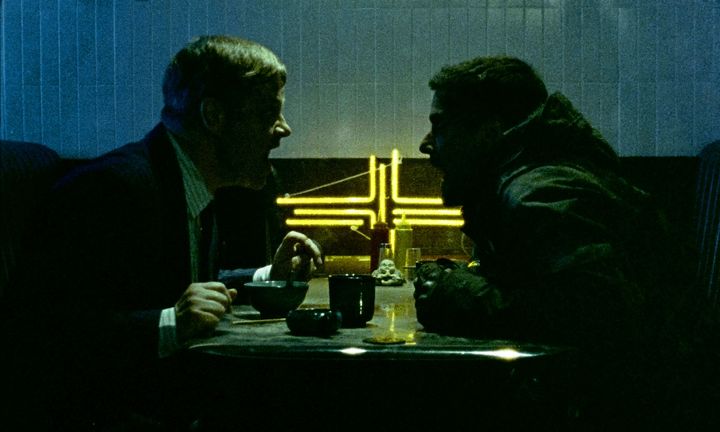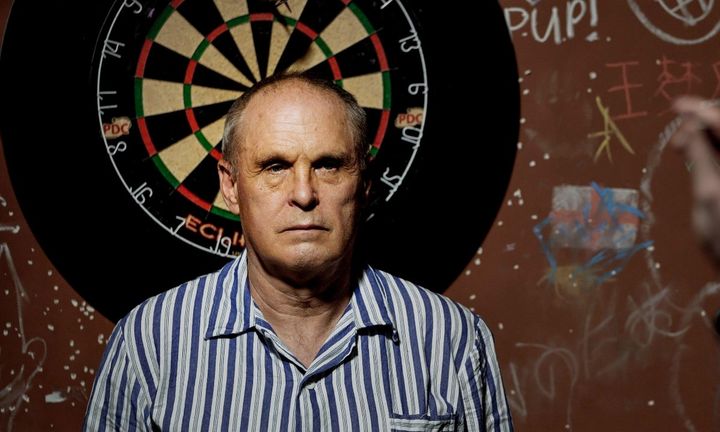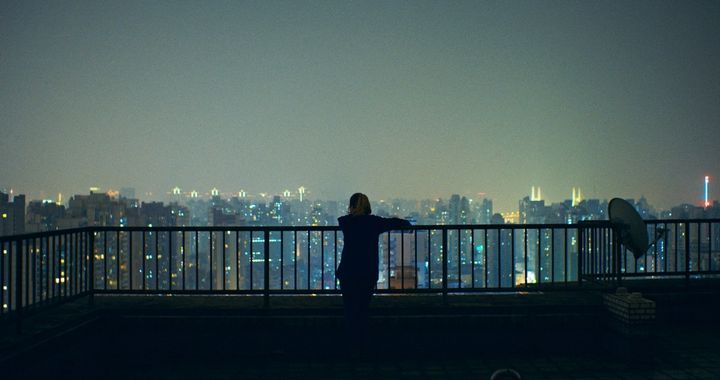After visiting an Earth-like world, an alien traveler records his observations about the its dominant lifeforms in the experimental doc, Planeta Zeme. Director and cinematographer Bing Bang talks about studying people, inventing a new language, and having a positive outlook on the future.
Planeta Zeme takes an experimental-documentary look at us—humans—from the point-of-view of an alien who records his observations during a brief visit to an Earth-like world. For director and cinematographer Bing Bang, the film marks a milestone on his filmmaking journey from his origins in Colombia to his current base in Beijing.
Following a brief stint studying film in Argentina, Bing Bang decided to relocate to China where he applied to be part of the very first class of international students at the Beijing Film Academy in 2013. It was during his stay at BFA that the director received a documentary class assignment which ultimately led to development of Planeta Zeme. At the time, however, he says he already had his eye on doing more than just making a film for course credit.
“I wanted to do something about human behavior, so I started really thinking about it and it became quite complicated,” he states. “It was also hard to find footage for it and so I took footage I shot along with cinematographer Davis Dreiska and we put in the voice-over and that ended up being the film.”

While Planeta Zeme mimics the look and feel of a documentary, its visual style and imagined alien point-of-view have led some to classify it as an experimental—rather than a documentary—film. And, although the director admits he doesn’t have a clear answer to that question, he has little difficulty citing the numerous sources of inspiration he drew from in putting the project together.
“I’ve always loved watching the Discovery Channel, Nat Geo, and especially David Attenborough. So, I thought, ‘What if an alien came to Earth and described us from that point-of-view?’,” he says. “Style-wise I was inspired by films like Samsara and Baraka. I really like that style of cinematography and the shots they have of human faces—it was all part of the inspiration.”
“I thought, ‘What if an alien came to Earth and described us from that point-of-view?’”
As part of the project’s development, Bing Bang originally planned to invent an alien language to use as part of the film’s narration. After failing to come up with something which sounded natural, however, he again turned to Dreiska who recorded the voice-over in his native Latvian. Nevertheless, despite the difficulty he had in trying to create something outer-worldly, he admits recording it all wasn’t even the most challenging part of the whole thing.
“The hardest part was putting a script together. It took two months and I watched other series that covered similar topics,” he recalls. “We had a big of pile of information and I was hoping to answer some essential questions, but of course it wasn’t possible.”
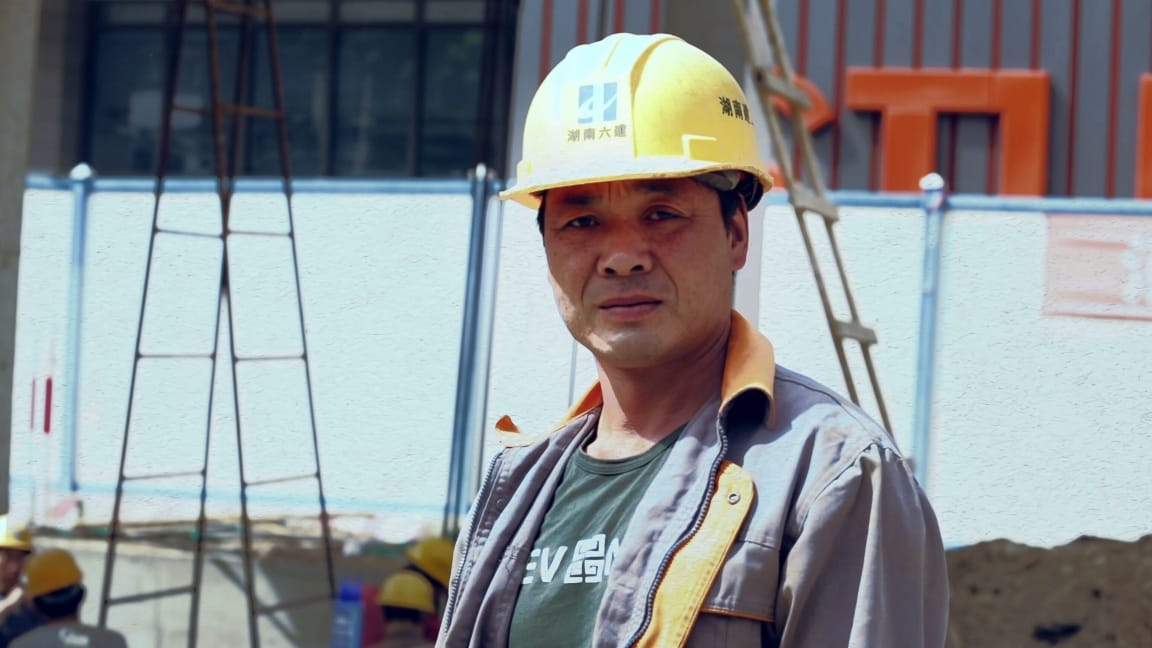
Furthermore, Bing Bang says his research left him with more questions than answers about the nature of our existence. Nevertheless, after nearly giving up on the project, he resolved to make a film which put many of those questions back in the hands of viewers.
“I had all of this information, but it was going nowhere, I didn’t have a film, and we felt we’d failed to describe humanity from an alien point of view,” he says. “So, we decided to put some of the unanswered questions into the film and let the audience decide.”
In order to help capture the scale and diversity of the film’s subject matter, Bing Bang made use of footage he and Dreiska shot in Beijing, Shanghai, the US, Colombia, and Vietnam. The response he has received from those who have seen the film as a result has been both positive and somewhat unexpected.
“People have said to me, ‘So, you used stock footage, right?’ and I tell them, ‘No, we shot everything.’”
“People have said to me, ‘So, you used stock footage, right?’ and I tell them, ‘No, we shot everything’,” he says. “Like the time-lapse in Colombia—it’s a compliment when people think that we didn’t shoot all of that.”
The film also contrasts images of landscapes and mass action with more intimate shots of individuals in their everyday environment. The director admits that getting footage of some of his human subjects—many of whom he randomly approached on the street—meant employing a bit of filmmaker trickery.
“I’d say to people, ‘Can I have a picture?’ and I’d wait for them for one, two, three, four, five seconds,” he says. “But, I was actually rolling video—so that’s how I got most of the close-up shots of people.”
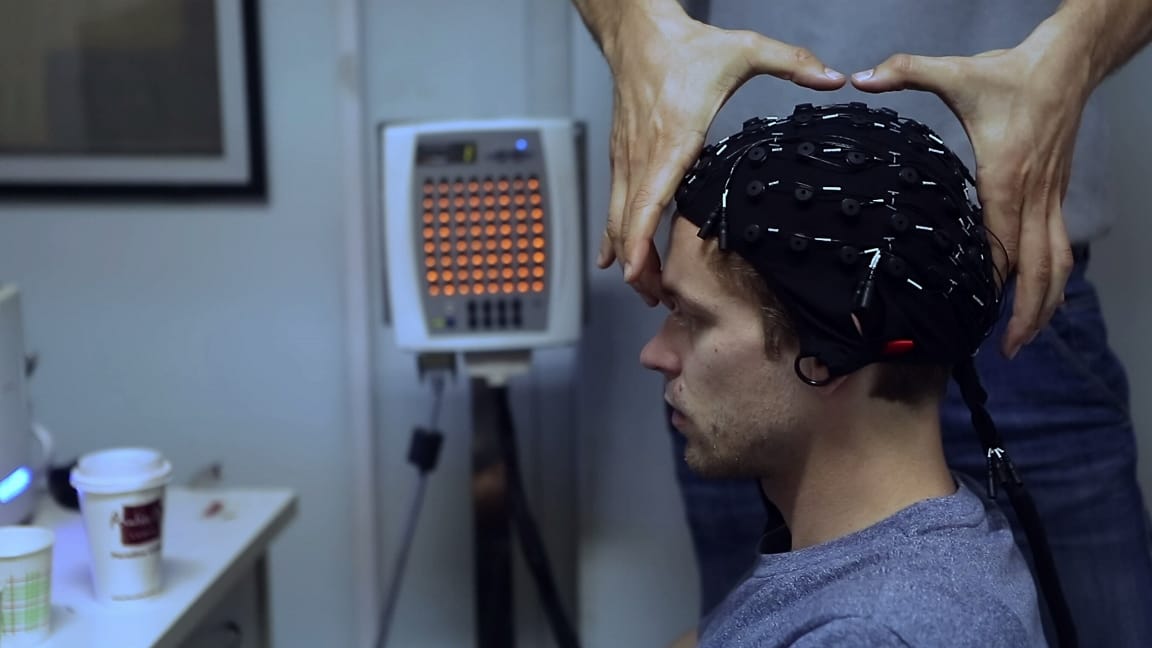
Despite screenings at BFA, Beijing ARTx, and the Colombian embassy, the film has seen limited festival release thus far. And, although that has been partially intentional, the director says he hopes that it will change in the near future.
“I haven’t sent it out to too many film festivals, but after the people saw it they’ve been calling me telling me show it in Beijing or at other screenings,” Bing Bang says. “Right now, I think the plan for the film is that we’ll start sending it out to more international film festivals.”
With the film now firmly under wraps, the director says he finally has more time to focus on expanding STONJAUS—the production company he launched along with his producer and partner Janice Angelica.
“We have a lot of projects we have to edit right now. Recently we went to Indonesia and we shot a film in Bali that we’re in post-production for,” he says. “We’re also doing something for the Shanghai 48-Hour Film Project and we’re working on a feature we want to pitch to producers and hopefully get funding for.”
In the meantime, Bing Bang says he hopes Planeta Zeme helps to leave audiences with a positive outlook on our existence as well as the future ahead.
“If there are problems in society, just know that we’re always evolving that we’re always moving forwards,” he concludes. “We shouldn’t be too attached to cultural traditions and we should always try to move forward towards a better society.”

